PTCOG-AO 2022
Rejoining PTCOG-AO, Building Bridges, Improving Qualities
December 2-3, 2022 | Venue : Jeju ICC, Jeju, Korea
Speakers
Education Session 2
Invited Speaker
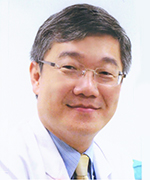
Joseph Tung-Chieh Chang
Department of Radiation Oncology and Proton Center, Linkou Chang Gung Memorial Hospital/ Taiwan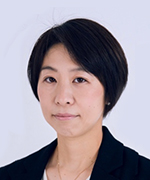
Naoko Okano
Gunma University Heavy Ion Medical Center / Japan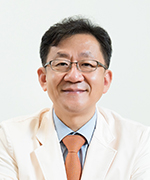
Hee Chul Park
Samsung Medical Center, Sungkyunkwan University School of Medicine / Korea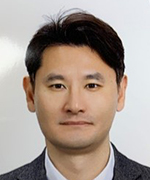
Sung Ho Moon
National Cancer Center / Korea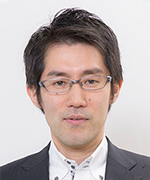
Yusuke Demizu
Hyogo Ion Beam Medical Center Kobe Proton Center / Japan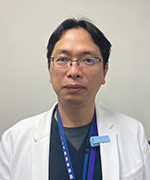
Masashi Mizumoto
Proton Medical Research Center, University of Tsukuba / Japan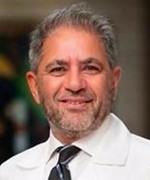
Rakesh Jalali
Apollo Proton Cancer Centre (APCC) / India
-
Joseph Tung-Chieh Chang
Department of Radiation Oncology and Proton Center, Linkou Chang Gung Memorial Hospital Taiwan
Specialty
Nasopharyngeal cancer, Head and neck cancer, Breast cancer, Liver cancer, GI cancer. Health related quality of life, Cost-effective studies, Cancer and Radiation Biology Research
Profile
Joseph Tung-Chieh Chang, MD,MHA, is a board-certified radiation oncologist, sub-specializing in head and neck cancer especially for nasopharyngeal carcinoma, breast cancer and gastrointestinal cancers. He is the professor of the Department of Radiation Oncology and Proton and Radiation Therapy Center, Chang Gung Memorial Hospital (CGMH) at Linkou. The department is the largest in the nation.
Dr. Chang got his MD degree at Taipei Medical College in 1989 and master of health administration in Chang Gung University in 2003. He completed his 4-year residency training at Chang Gung Memorial Hospital, got the clinic professor in 2008 and became the chairman of the department in 2014. He and his colleges have dedicated their lives to the research and development of cancer radiation treatments, particularly in the subject of head and neck cance, nasopharyngeal carcinoma, breast cancer, health related quality of life and liver cancer. Up to date, Dr. Chang has successfully treated over 6,000 patients and published more than 200 peer-reviewed papers.
He does not only an active member of Taiwan and international clinical professional societies but also a member in Psycho-social societies. Dr. Chang does not only emphasize in cancer control but also put his effort in the issue of life quality. He wants his patients live in good life but not only long life.

-
Naoko Okano
Gunma University Heavy Ion Medical Center Japan
- Gunma University Heavy Ion Medical Center
- Joint Research Chair (Hitachi Industries)
- Associate professor
Education
- 2006 Gunma University, MD
- 2015 Gunma University graduate school of medicine, Radiation Oncology, PhD
Profession
- 2006-2008 Tokyo University Hospital, junior resident
- 2008-2012 Tokyo cancer and infectious center Metropolitan Komagome Hospital, senior resident
- 2012-2016 Gunma University Hospital
- 2016-2017 Tomioka General Hospital
- 2017-2018 National Hospital Organization Takasaki Medical Hospital
- 2018-2019 Gunma University Hospital
- 2019-2022 Gunma University Heavy Ion Medical Center Assistant professor
- 2022-present Gunma University Heavy Ion Medical Center, Joint Research Chair (Hitachi Industries), Associate professor
Honors
- 2021 1st meeting of Japanese Society of Quantum Medical Science、Best Presentation Award

-
Hee Chul Park
Samsung Medical Center, Sungkyunkwan University School of Medicine Korea
Current Title:
- Professor, Department of Radiation Oncology, Samsung Medical Center, Sungkyunkwan University School of Medicine
Education:
- (1992) MD, Yonsei University College of Medicine
- (2004) PhD (Radiation Oncology), Yonsei University Graduate School
Careers:
- (1992) Internship, Severance Hospital, Korea
- (1993~1996) Military Service, Lieutenant, Reserve Officer
- (1996~1999) Residency, Department of Radiation Oncology, Yonsei Cancer Center, Korea
- (2000) Fellowship, Department of Radiation Oncology, Chosun University Hospital, Korea
- (2001) Fellowship, Department of Radiation Oncology, Yonsei Cancer Center,
- (2001~2005) Assistant Professor, Department of Radiation Oncology, Hallym Univeristy Hospital, Hallym University College of Medicine, Korea
- (2006) Honorable Visiting Instructor, Hokkaido University Hospital, Japan
- (2006~2007) Visiting Scientist, MD Anderson Cancer Center, USA
- (2008~2009) Clinical Associate Professor, Samsung Medical Center, Korea
- (2010~2015) Associate Professor, Department of Radiation Oncology, Samsung Medical Center, Sungkyunkwan University School of Medicine, Korea
- (2016~Present) Professor, Department of Radiation Oncology, Samsung Medical Center, Sungkyunkwan University School of Medicine, Korea
Duty Assignments:
- (2017.04~2019.03) Deputy director, Office of management and support (Cancer Hospital), Samsung Medical Center
- (2019.04~Present) Director, Office of management and support (Cancer Hospital), Samsung Medical Center
- (2019.04~Present) Director, Samsung Proton Therapy Center, Samsung Comprehensive Cancer Center, Samsung Medical Center
- (2021.04~Present) Chairman and Chief Professor, Department of Radiation Oncology, Samsung Medical Center, Sungkyunkwan University School of Medicine
Research Summary:
- My research interests include the clinical application of cutting-edge technologies in the field of medical physics, bio-medical engineering and radiation biology for the radiation treatment of hepatocellular carcinoma. For the application of medical physics, I am spending a lot of time and efforts on introducing the targeted radiation therapy technologies into practice. Those technologies include proton therapy, stereotaxic ablative radiotherapy, and 4-dimensional respiration synchronized radiotherapy. As bio-medical engineering subjects, my laboratory exerts the efforts on the development of bio-absorbable fiducial using bio-degradable polymers and various radio-opaque materials. The ferro-magnetic nano-hyperthermia is another area of interests. As functional imaging research in radiation oncology, I am interested in the prediction of radiation response of tumor or normal tissue using magnetic resonance imaging. As radiation biology research, my lab focuses on the measurement of relative biological effectiveness of proton therapy, and the radio-sensitization of ablative radiotherapy. We had been supported by the government for the projects of ‘4-dimensional radiotherapy planning using 4-dimensional gated MRI’ and ‘development of bio-absorbable fiducial for 4-D radiotherapy’. Now, we are supported by the government for the projects of ‘Synergistic effect of proton therapy and histone deacetylase inhibitors in liver cancer treatment’, ‘Marine-integrated Bionics Research for radio-sensitization of proton therapy’ and ‘Development of nano-immune converging technology to overcome limitation of radiation therapy’. (Keywords: hepatocellular carcinoma, proton therapy, stereotaxic ablative radiotherapy, 4-dimensional respiration synchronized radiotherapy, bio-absorbable fiducial, ferro-magnetic nano-hyperthermia, relative biological effectiveness, radio-sensitizer)

-
Sung Ho Moon
National Cancer Center Korea
Educational Background:
- 1993-1999 Seoul National University, Seoul, Korea M.D. Seoul National University College of Medicine
- 2004-2006 Master of Medical Science Graduate School of University, Seoul National University
- 2006-2010 PhD of Medical Science Graduate School of University, Seoul National University
Professional Experience:
- 2016.03 ~ Present Senior Researcher, National Cancer Center, Republic of Korea
- 2016.03 ~ 2017.2 Visiting Scholar, University of North Carolina Visiting Scholar, University of North Carolina
- 2009.03 ~ Present Medical staff, National Cancer Center, Republic of Korea
- 2007.03 ~ 2009.02 Clinical fellowship, National Cancer Center, Republic of Korea
- 2003.03 ~ 2007.2 Residency, Seoul National University Hospital, Republic of Korea
- 2002.05 ~ 2003.2 Internship, Seoul National University Hospital, Republic of Korea
Professional Organizations:
- Korean Society for Radiation Oncology
- Korean Medical Association
- Korean Cancer Association
- Korean Society for Head and Neck Oncology
- Korean Association for the Study of Lung Cancer

-
Yusuke Demizu
Hyogo Ion Beam Medical Center Kobe Proton Center Japan
- Medical Director, Hyogo Ion Beam Medical Center Kobe Proton Center, Kobe, Hyogo, Japan
YUSUKE DEMIZU, MD, PhD, is a graduate of Kobe University School of Medicine, Japan. Dr. Demizu trained as a Resident at Kobe University Hospital and Hyogo Medical Center for Adults, Japan, and worked as a Fellow at Takatsuki General Hospital, Japan. Then, he earned his PhD degree from Kobe University Graduate School of Medicine. The title of his dissertation was “Cell biological basis for combination radiotherapy using heavy-ion beams and high-energy X-rays.” After graduation, he joined Department of Molecular Pathology, the University of Texas M. D. Anderson Cancer Center, USA as a Postdoctoral Fellow, and was mainly involved in basic research of reactive oxygen species which are strongly related to the biological effects of radiation. He then moved to Hyogo Ion Beam Medical Center (HIBMC), Japan, the first institution in the world where both proton therapy and carbon ion therapy are available, as a Chief Radiation Oncologist. He was promoted to a Medical Director at HIBMC Kobe Proton Center, Japan, the first proton center mainly dedicated for pediatric patients in Japan. His clinical and basic research interests include all aspects of particle therapy, with particular interests in bone and soft tissue sarcomas, head and neck cancers, and pediatric malignancies. He is one of the developers of the bioabsorbable spacer (Neskeep®) which is used in radiotherapy for abdominopelvic tumors adjacent to the gastrointestinal tract. He is a board certified radiation oncologist by the Japanese Society for Radiation Oncology (JASTRO).

-
Masashi Mizumoto
Proton Medical Research Center, University of Tsukuba Japan
EDUCATION:
- 1995 Graduated from Higashi-Katsushika High School (Chiba)
- 2002 Tsukuba University, Medicine and Medical Science
LICENSURE and CERTIFICATION:
- 2002, National Board of Medicine, Registration No. 424497
- 2007, Japanese Board of Radiology, Registration No. 5005
- 2008, Japanese Board of Radiation Oncologist, Registration No. R11678 RO
- 2008, Japanese Board of Cancer Therapy, Registration No. 07200847
Positions and Employment:
- 2002-2004 Doctor in training, University of Tsukuba
- 2004-2006 Part-time stuff, Department of Radiation Oncology, Shizuoka cancer center hospital
- 2006-2007 Resident, Department of Radiation Oncology, University of Tsukuba
- 2007-2008 Stuff, Department of Radiation Oncology, Shizuoka cancer center hospital
- 2008- Assistant Professor, Department of Radiation Oncology, University of Tsukuba
- 2020- Associate Professor, Department of Radiation Oncology, University of Tsukuba
MEMBERSHIPS:
- American Society for Therapeutic Radiation and Oncology
- Japanese Society for Therapeutic Radiation and Oncology
- The Japan Neurosurgical Society
- The Japanese Society of Pediatric Hematology / Oncology
HONORS and AWARDS:
- 2007, Society award of Japanese Society for Therapeutic Radiation and Oncology
- 2008, Society award of Japan Society of Clinical Oncology
- 2009, Umegaki Awards of Japanese Society for Therapeutic Radiation and Oncology

-
Rakesh Jalali
Apollo Proton Cancer Centre (APCC) India
- Medical Director, Apollo Proton Cancer Centre
- Professor and Head of Radiation Oncology
- Lead, Neuro-Oncology Cancer Management Team
- Address (work): Apollo Proton Cancer Centre 100 Feet Road, Taramani, Chennai-600 096
- Email: rjalali@apollohospitals.com
- Website: www.apolloproton.com
Professor Rakesh Jalali is the Medical Director of India’s and South Asia’s first proton therapy facility at the advanced comprehensive cancer centre, the Apollo Proton Cancer Centre (APCC), leading its clinical care administration. His concept of site-specific cancer care with dedicated Cancer Management Teams (CMT) has been successfully implemented in the centre and is being replicated across all other centres of the Apollo Hospitals group, one of the premier oncology networks in India/region known for its excellence in clinical care and infrastructure. He has successfully led the clinical initiation of India and South-Asia’s first proton therapy programme and is considered as a leading expert in the field in the region. Before joining Apollo, Dr.Jalali spent 18 long fruitful years at Tata Memorial Hospital, Mumbai where he led the Neuro Oncology Group as the finest such unit in India.
Prof Jalali’s numerous research interests and publications over the years have focused on generating quality evidence for high-precision techniques of radiotherapy, image guided pencil beam scanning proton therapy, late-term toxicities, biological imaging, molecular prediction and clinical evaluation of new agents in neurooncology, several patient reported outcome measures and quality of life issues in neuro oncology practice in the region along with novel insights in long-term cancer survivorship. He was also instrumental in establishing the premier neuro oncology society, the Indian Society of Neuro-Oncology (ISNO) in 2008 serving as its founding general secretary, then its President and now chairing its senior advisory council. A key opinion leader in the field of neuro-oncology, he helped formulate several treatment guidelines for evidence based contemporary management of brain tumours such as medulloblastomas, WHO classification etc, which are being followed across the region and beyond. He has led and mentored various cancer initiatives globally including in Asia-Pacific and African regions. He is also widely known for his teaching and providing expert guidance to various national and international scientific meetings and professional societies.
Prof Jalali is also well-known for his commitment to promoting equitable cancer care for patient populations from diverse backgrounds. He was instrumental in shaping up the ‘Brain Tumour Foundation of India’, an internationally recognized charity dedicated to the welfare of the patients with brain tumours and their families, as well as conducting ‘Patient support group’ meetings for cancer patients and their caregivers.
